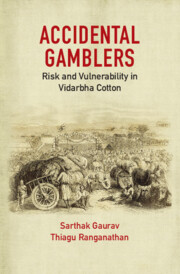Introduction
Published online by Cambridge University Press: 18 April 2023
Summary
As this book goes to print, life is slowly returning to normalcy in India following multiple waves of a debilitating pandemic that took the lives of more than half a million. Debates on the true extent of deaths notwithstanding, the pandemic infected above 40 million in the country and impacted lives and livelihoods across the globe. There is considerable uncertainty in Europe with the Russian invasion of Ukraine; political instability in neighbouring Pakistan with the ousting of the incumbent prime minister in a no-trust vote; mass protests following the economic crisis in Sri Lanka; strict lockdown in China as it grapples with another wave of COVID-19 outbreak; and inflationary pressures remain a concern worldwide amidst supply disruptions as recovery from the pandemic-induced recession had commenced. By contrast there is exuberance in the Indian financial sector, ‘unicorns’ are disrupting the market with their technological innovation and the initial public offering market spanning diversified industries is buoyant with unprecedented proceeds and a robust pipeline for the near future. While most struggle to make sense of how the platform economy creates value or how the digital transformation has created nouveau dollar billionaires, a ‘crypto mania’ is sweeping through the country. Not surprisingly the Government of India has announced that it will issue a digital rupee as central bank digital currency and that incomes from crypto assets will be taxed. In stark contrast to the exuberance in the financial markets and the ongoing digital transformation, the farm sector has witnessed prolonged large scale agitation.
In an unanticipated move in November 2021, the Government of India repealed three controversial farm laws enacted in September 2020 that were at the centre of protracted protests by farmers: mostly from the north Indian states. As agitating farmers and farmer unions demanded repeal of the farm laws and that the minimum support price (MSP) be made the legal guarantee as the floor price for all market purchases, the deep-rooted agrarian distress in regions such as Vidarbha in Maharashtra faded into oblivion as if those in crisis were unable to protest vehemently or end their lives tragically enough to draw media and policy attention. Of course, the issue of agrarian crisis has to be seen in the larger context of the changing structure of the economy and society. The underlying structural transformation of the economy has undoubtedly resulted in millions moving out of agriculture, and rising non-farm employment.
- Type
- Chapter
- Information
- Accidental GamblersRisk and Vulnerability in Vidarbha Cotton, pp. 1 - 10Publisher: Cambridge University PressPrint publication year: 2023



